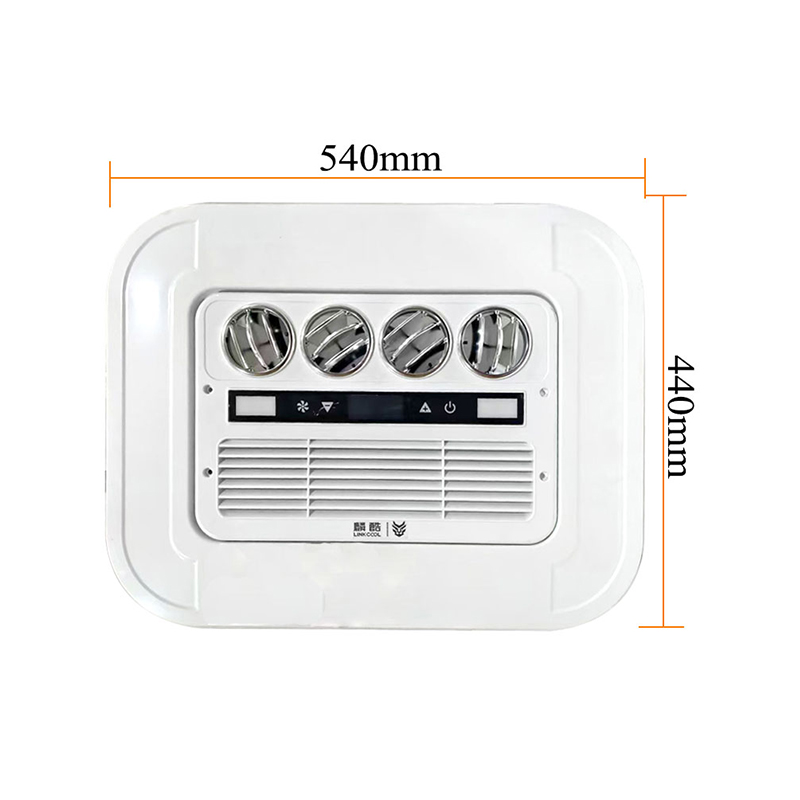A camper air conditioner is not just about cooling the space—though that is certainly a core function. It serves as a compact, integrated climate control solution tailored to small and often mobile environments. Its performance directly influences the overall camper experience, especially during hot summers or when parked in regions with high humidity.

From a design perspective, the camper air conditioner must strike a balance between power and efficiency. Space within a camper is limited, and users expect the unit to be lightweight, unobtrusive, and easy to install—whether roof-mounted or under-bench. Manufacturers must take into account the weight limits of recreational vehicles, the dimensions of common installation points, and the ventilation requirements that ensure the unit functions reliably under various travel conditions.
Power consumption is another important factor in the engineering of a camper air conditioner. Unlike household units that rely on stable electrical grids, camper models often operate off-grid, using batteries, solar panels, or generators. This makes energy efficiency crucial. Advances in inverter compressor technology and smart temperature management systems allow for more effective climate control while minimizing power draw, a feature increasingly appreciated by environmentally conscious users.
Noise is another consideration that shapes the development of every camper air conditioner. Since campers are compact and often used for sleeping, noisy operation is not acceptable. Fan motor improvements, vibration-reduction structures, and multi-speed settings have all contributed to quieter running units. Manufacturers invest in acoustic insulation and airflow design to ensure that cooling doesn’t come at the expense of peace and quiet.
The durability of a camper air conditioner is vital, especially since campers can be exposed to diverse weather conditions, road vibrations, and varying altitudes. Robust casing, UV-resistant materials, and water-resistant seals are used to ensure that the system can withstand long-term exposure and perform well in fluctuating environments.
Maintenance accessibility is a further point of focus. Owners of camper vans and RVs expect systems that are user-friendly. For this reason, the camper air conditioner is designed with washable filters, easily accessible components, and minimal maintenance needs. From the manufacturer’s standpoint, this not only enhances customer satisfaction but also reduces warranty claims and after-sales service loads.
The evolution of smart technology has also made its way into the camper air conditioner market. Models now increasingly support remote control via mobile apps, temperature automation, and integration with onboard camper systems. These innovations provide better temperature management and energy usage, and they align with the digital preferences of a younger generation of travelers.
Global market variations must also be considered in production planning. A camper air conditioner intended for Europe may need different sizing, voltage compatibility, and climate features than one designed for North America or Australia. Regional preferences in temperature settings, expected cooling speeds, and even exterior styling guide how manufacturers develop and customize units for each market.
In addition to functional performance, environmental concerns are shaping the manufacturing choices behind every camper air conditioner. Eco-friendly refrigerants, recyclable materials, and RoHS-compliant components are increasingly requested by OEMs and end-users alike. Regulations in various markets require manufacturers to continually innovate while adhering to compliance standards.
Ultimately, the camper air conditioner is no longer a luxury add-on. It is a necessary component that determines whether a camper or RV meets the expectations of today's mobile lifestyle. From summer road trips through the desert to humid coastal getaways, the comfort offered by a dependable air conditioning system can make or break the experience.
As a manufacturer, our role is to anticipate these needs and deliver solutions that meet them. Through ongoing development, customer feedback, and technological advancement, we aim to produce camper air conditioner models that combine energy efficiency, durability, and modern functionality—all while keeping comfort at the core of the mobile living experience.